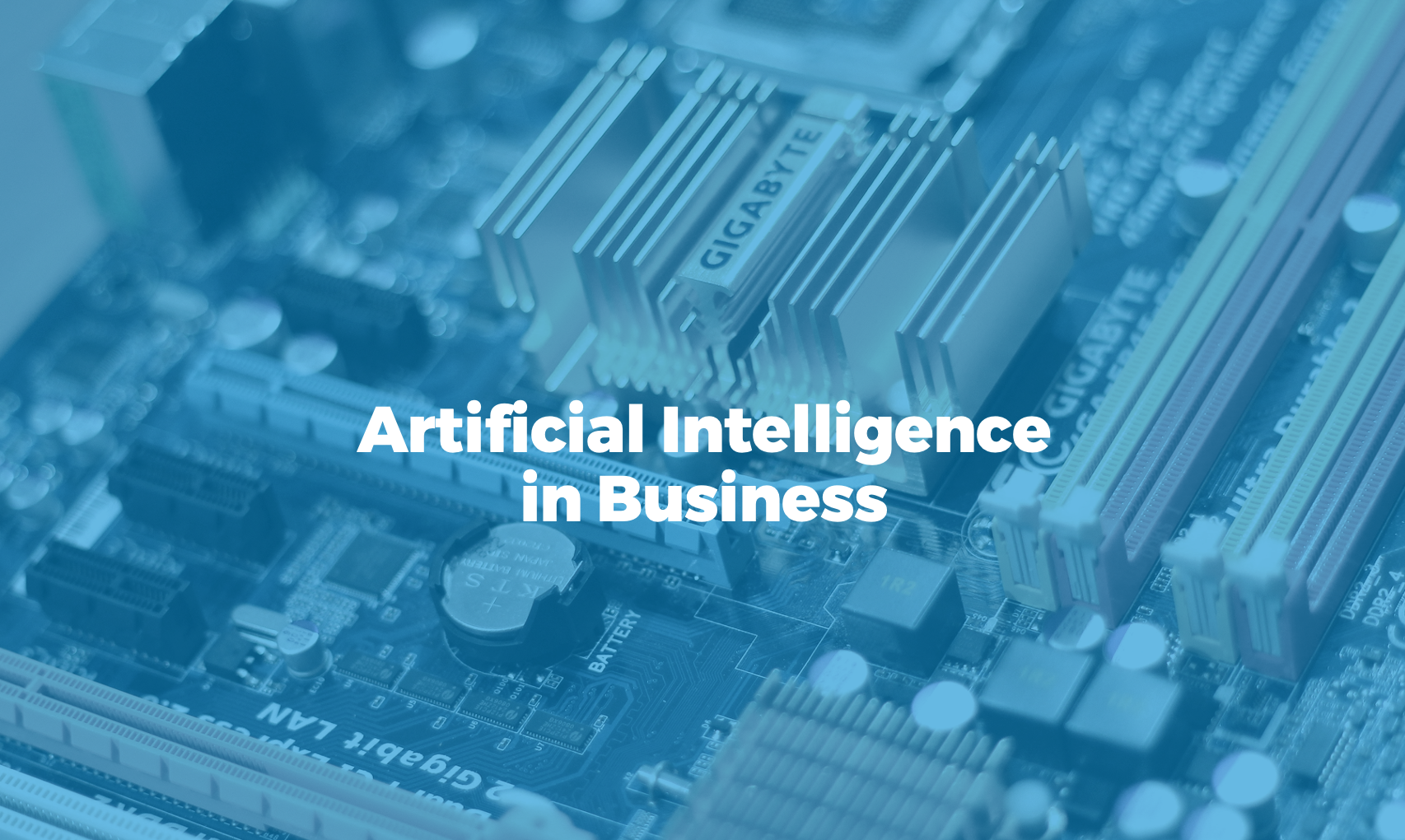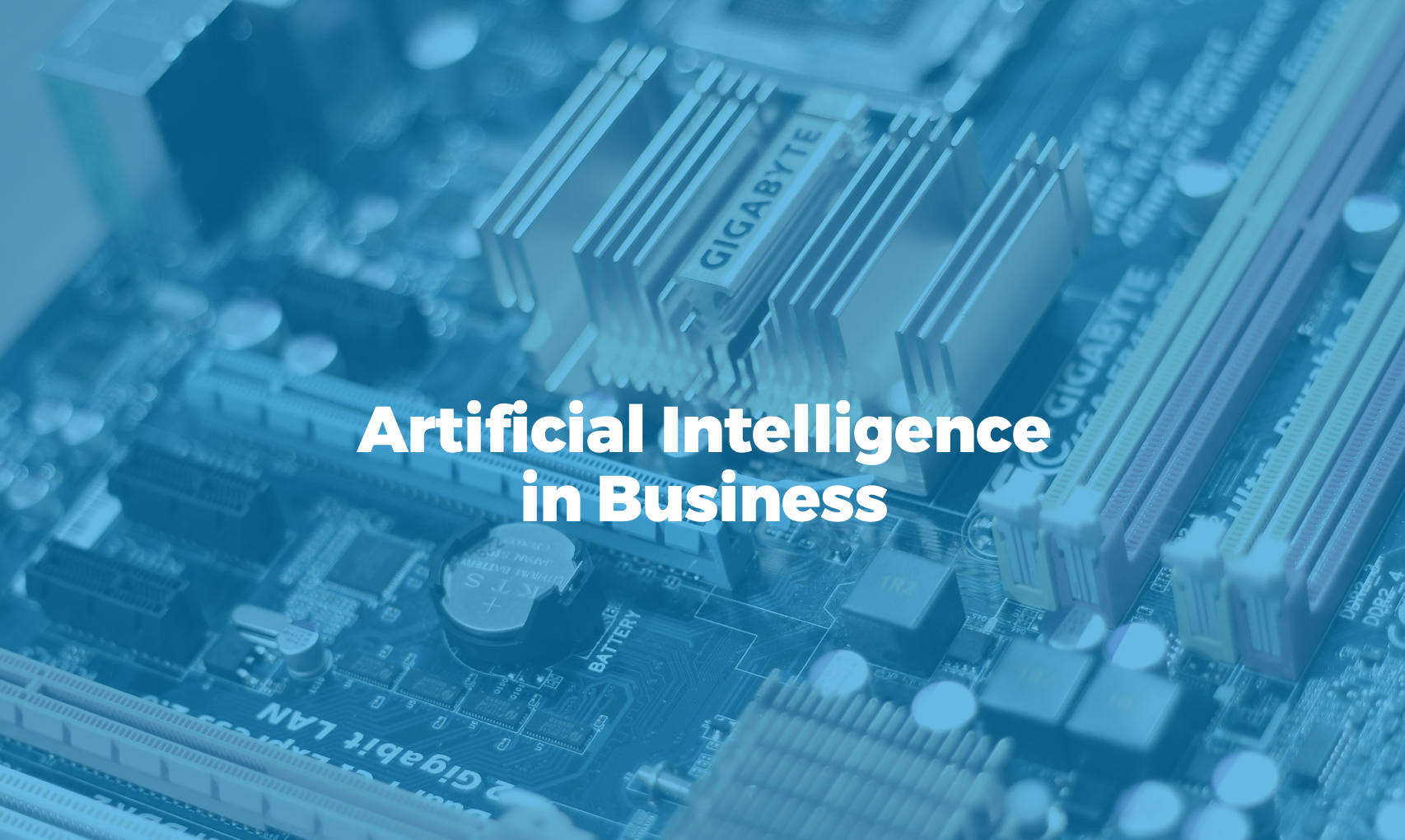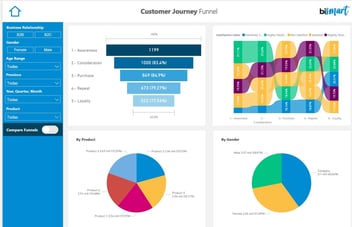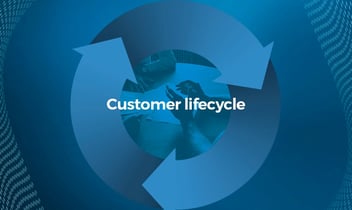Artificial intelligence is no longer a fancy gimmick. It is changing how business work. We tell you how in this article.
Working in today's hyper-competitive landscape means always staying a step ahead of the competition. Technological innovations have proved useful in this regard, whether it comes to optimizing current processes or coming up with innovative products and solutions.

Artificial intelligence (AI) has proven to be more than a fancy gimmick or something relegated to those in the tech industry. New uses for AI are being discovered practically every day, with researchers from the USA creating models that determine how trustworthy AI-generated data is, which just goes to show how in-demand AI solutions will be in the near future.
What's so great about AI is that it isn't just for making large-scale decisions: there are smaller, more everyday uses for AI that are nonetheless extremely helpful. Then there is also the case of how AI may be able to help businesses during the current health crisis.
Organized and optimized processes
The advent of digital work means that we're constantly tied to our computers, often juggling lots of tasks at once. It can be difficult to keep track of everything, which is where virtual assistants like Cortana come in handy. We've talked about virtual assistants in our post on What Will Artificial Intelligence Mean for the Future of Work?, and how apps like Siri and Cortana are extremely helpful for those who are handling different projects at once, such as freelancers or those running their own business. What's more, these virtual assistants become smarter with frequent use. Working digitally is the new normal, and having a virtual assistant can help businesses navigate this digital shift.
Supermarkets and delivery services are extremely busy right now, and AI can help facilitate communication between teams. Indeed, Verizon Connect's article on staying efficient highlights how tools like GPS tracking and route optimization software as key to keeping mobile workers safe and productive. By having AI track things like driver location and route information, communication processes become more streamlined and everyone from the drivers to the customers are kept in the loop.
Enhanced security, greater personalization
Social media metrics are useful for tracking consumer behavior, but everyone knows that the numbers are only as good as the analysis. This is where AI comes in. Analytics tools can take stock of multiple factors (think comments, shares, and user demographics) and create graphs that help forecast trends with ease. This will be especially helpful in the next few months as Reuters reports that many European consumers are keeping a close eye on their finances and are therefore more hesitant to spend.
While the harsh reality is that new product releases may have to be put on hold until the COVID-19 pandemic eases up, businesses can still leverage this data to foster deeper and more meaningful connections with customers. Brands everywhere are relying on digital strategies, such as interactive Instagram stories and online influencers, as a way to stay connected to their audience, and data leveraged by AI can help craft campaigns that are perfect for your company.
Of course, any discussion about customer data requires a look into cybersecurity. In today's digital world, a data breach on just one account could lead to a massive ripple effect. Situations like these put businesses in hot water when it comes to consumer privacy. AI-powered software can detect fraudulent links and unknown e-mail addresses, run routine security checks, and create secure authentication processes for customers.
Will help businesses continue during the pandemic
The pandemic has caused many businesses to shut down or dramatically reduce operations. The good news is that AI might be the solution to returning to some of commercial normality. The Spanish government is planning on using AI robots to test citizens in a bid to speed up tests safely. The prediction is 80,000 tests per day. With an improved track and trace, businesses will have a much better chance of surviving the pandemic, which shows no sign of slowing down. While the previous points showed how AI is helping businesses evolve, it may soon be the reason businesses continue to operate.
The best business leaders know that AI should complement existing processes, not replace them. Ultimately, these solutions promise greater collaboration amongst teams and more ways to connect with customers. As more AI solutions come to fruition, they're likely to become part of business operations across all industries.
Exclusively written for bismart.com. Prepared by Alessa Jameson. Alessa Jameson is an organizational consultant with an interest in using the digital world to improve business operations. Her new lockdown hobby is embroidery, and she can always be found sipping on some green tea.



